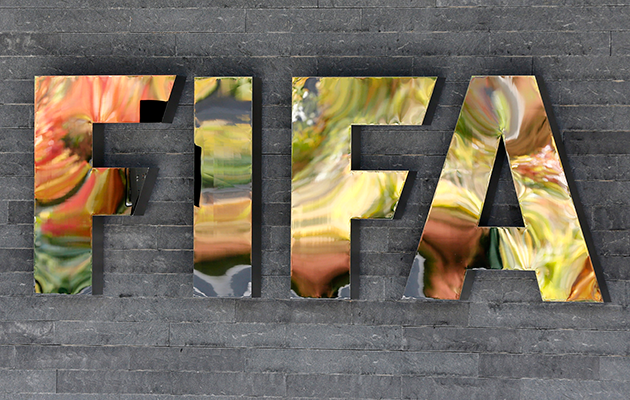The contentious Garcia Report into the scandal-scarred 2018/2022 World Cup bid process reveals a tawdry tale of greed, power and arrogant self-entitlement among the men running the game.
World federation FIFA published the report after the attempt to keep it under lock and key was pushed to the point of ridicule by its leak on Monday to German newspaper Bild.
American attorney Michael Garcia was appointed as FIFA’s first ethics investigator in 2012 with a brief to examine events which led up to the World Cup awards to Russia and Qatar by the executive committee in December 2010. Subsequently FIFA published only a summary, by then ethics judge Hans-Joachim Eckert, and Garcia quit in anger in 2014.
Eckert plus Garcia’s deputy and then successor Cornel Borbely were sacked from their ethics chamber roles at the behest of president Gianni Infantino at last month’s FIFA Congress in Bahrain.
Hence the first significant act undertaken by new investigator Maria Claudia Rojas and adjudicatory chief Vassilios Skouris was to order immediate publication of the 430-page report.
The full report vindicates Eckert’s assessment that no firm case for direct corruption can be levelled against any bidder.
Certainly several bids (including but not only Qatar), pushed the bid’s flabby rules to the limit; others (Australia and England) fell over themselves in humiliating attempts to accommodate the demands of notorious CONCACAF president Jack Warner; Japan went over the top with personal gifts; and South Korea undermined its own bid with a blatantly personalised ‘global football fund’ proposal.
Garcia reveals childish behaviour from Spanish federation president Angel Villar and the late Argentinian power-broker Julio Grondona in angrily challenging his authority to question then; he also lays bare the embarrassing attempts of German exco member Franz Beckenbauer to wriggle out of answering questions; and he had no illusions about the self-serving ‘liaison’ work of former Barcelona president Sandro Rosell who had close links to both Qatar and Brazilian FIFA member Ricardo Teixeira.
Least troublesome bid was Belgium/Holland whose response to Garcia’s investigatory work is summed up in four lines, ending: “No issues were identified.”
Most of the members of the FIFA exco who voted for Russia and Qatar in 2010 have been either banned subsequently by the ethics committee for other reasons – including the then president Sepp Blatter – or forced out of the game.
The report’s two most precise investigatory analyses were not contributed by Garcia, however, but by his then deputy and successor, Swiss lawyer Cornel Borbely. The latter stepped into the breach after Garcia recused himself from investigating bid from his ‘home’ United States and Russia from which he was barred after previous, unconnected legal work for the US government.
Borbely’s two reports deal with bid mechanics and narratives whereas Garcia’s report focuses heavily on the behaviour of the individual FIFA exco members, some of the bid directors and their advisers and consultants.
The Russians, currently hosting the Confederations Cup as a warm-up for next year’s World Cup, will be satisfied at emerging with a comparatively clean bill of health from the report.
Borbely reports the absence of a significant chunk of their bid correspondence after the return of their leased computers. But then, Russia was not the only bid which could not provide bid correspondence. Most bidders had gaps somewhere in their retained records.
The interest of the German newspaper, Bild, in the original leaking of the report is clear in the passages which focus directly on the role of tarnished old German hero Franz Beckenbauer and his reliance on close aide Fedor Radmann. Beckenbauer was always considered a supporter of the Russian bid for 2018 while Radmann was a highly-paid consultant to the Australia 2022 effort.
For years Beckenbauer was Bild’s star personality sports columnist until his retirement last year amid controversy around his role with Germany’s own winning bid for the 2006 World Cup.
FIFA, seeing to justify its sudden rush to publication said: “[Publication] had been called for on numerous occasions by FIFA president Gianni Infantino in the past and also supported by the FIFA Council since its meeting in Mexico City in May 2016.
“Despite these regular requests, it is worth noting that the former chairpersons of the ethics committee, Cornel Borbely and Hans-Joachim Eckert, had always refused to publish it.
“The ethics committee will meet in its full composition under the new chairpersons for the first time next week, and it was already planned to use this opportunity to discuss the publication of the report.
“However, as the document has been illegally leaked to a German newspaper, the new chairpersons have requested the immediate publication of the full report (including the reports on the Russian and US bid teams, which were conducted by Mr Borbély alone) in order to avoid the dissemination of any misleading information.
“For the sake of transparency, FIFA welcomes the news that this report has now been finally published.”







